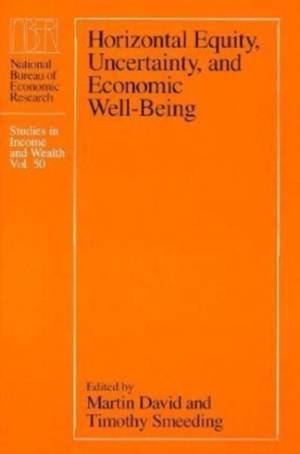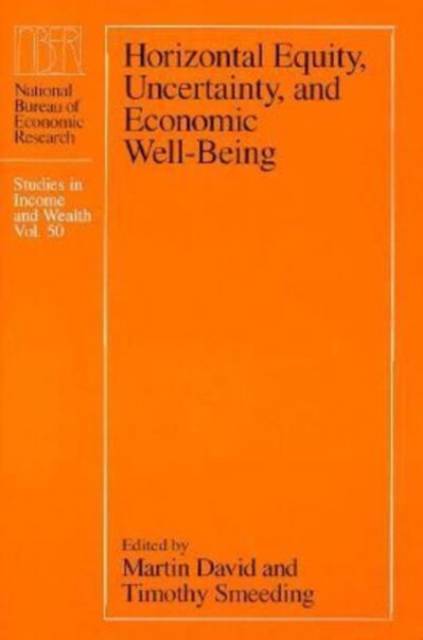
- Afhalen na 1 uur in een winkel met voorraad
- Gratis thuislevering in België vanaf € 30
- Ruim aanbod met 7 miljoen producten
- Afhalen na 1 uur in een winkel met voorraad
- Gratis thuislevering in België vanaf € 30
- Ruim aanbod met 7 miljoen producten
Zoeken
Horizontal Equity, Uncertainty, and Economic Well-Being
Volume 50
€ 140,95
+ 281 punten
Omschrijving
The result of a National Bureau of Economic Research Income and Wealth conference held in December 1983, this volume looks at the concept of "economic well-being" and the ways that analysts have tried to measure it. In addition to income, economists have begun to consider such factors as pensions, wealth, health, and environment when measuring the well-being of a particular group. They have also begun to measure how consumers respond, successfully or unsuccessfully, to such economic uncertainties as inflation, divorce, and retirement. Using new data and techniques, the contributors to this book concentrate on issues of uncertainty and horizontal equity (the equal treatment of individuals within a defined group). Their work points to better ways of determining how various groups in a society are faring relative to other groups. Economists and policy analysts, therefore, will be in a better position to determine how government programs should be applied when well-being is used as a test.
Specificaties
Betrokkenen
- Uitgeverij:
Inhoud
- Aantal bladzijden:
- 531
- Taal:
- Engels
- Reeks:
- Reeksnummer:
- nr. 50
Eigenschappen
- Productcode (EAN):
- 9780226137261
- Verschijningsdatum:
- 1/09/1985
- Uitvoering:
- Hardcover
- Formaat:
- Genaaid
- Afmetingen:
- 161 mm x 237 mm
- Gewicht:
- 861 g

Alleen bij Standaard Boekhandel
+ 281 punten op je klantenkaart van Standaard Boekhandel
Beoordelingen
We publiceren alleen reviews die voldoen aan de voorwaarden voor reviews. Bekijk onze voorwaarden voor reviews.







